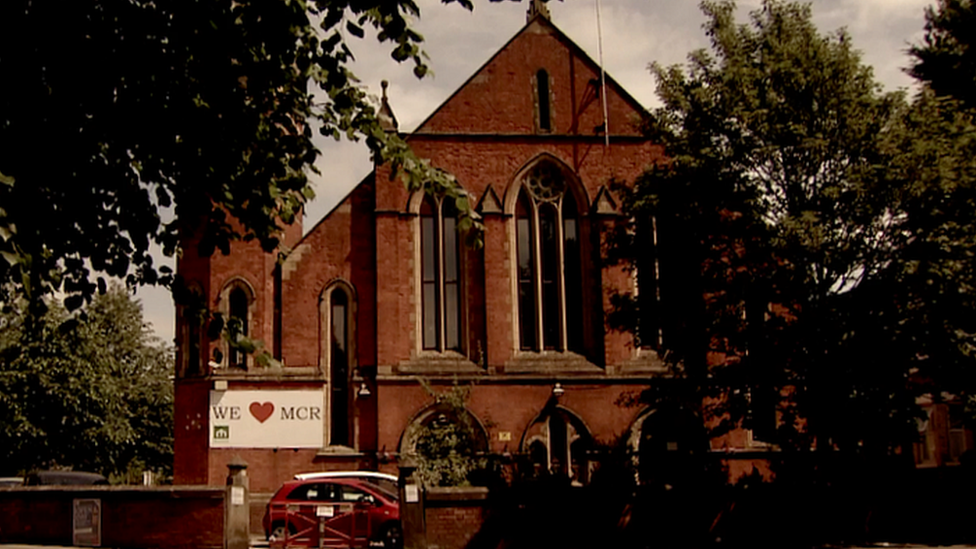Didsbury Mosque 'military jihad' sermon probe ends (original) (raw)

Image caption,
Didsbury Mosque said the BBC investigation was "misleading"
An investigation into a sermon at a mosque where the Manchester Arena bomber worshipped has found no offences were committed.
Two Muslim scholars claimed the sermon by Imam Mustafa Graf at Didsbury Mosque in 2016 called for the support of fighters in Syria.
Six months later Salman Abedi killed 22 people after an Ariana Grande concert.
Mr Graf denied preaching Islamic extremism and police have said their investigation has now ended.
The sermon was held in December 2016 when the Syrian city of Aleppo had been caught in a four-year deadlock.
The BBC obtained a recording where Mr Graf was heard saying: "Jihad for the sake of Allah is the source of pride and dignity for this nation."
Didsbury Mosque previously said the BBC investigation was "a misleading report, out of context, which appears to create an association between the criminal act of Salman Abedi and a dated sermon at the mosque".
It said the sermon encouraged people "to pray to God to help those victims of oppression" and "there was no call for any military Jihad".
Mr Graf also denied he had called for armed jihad.
Image source, Getty Images
Image caption,
Imam Mustafa Graf has denied ever preaching Islamic extremism
A joint statement from Manchester City Council and Counter Terrorism Policing North West confirmed no offences had been committed.
It said: "We recognise that mosques have a very important and valuable role to play within our communities and we will always seek to work with trustees to strengthen those community relationships.
"Although at all times freedom of expression must be respected we understand that people may be concerned by the content of the BBC report, in particular the tone of the speech.
"We have engaged with the Mosque Trustees for several months and they have committed themselves to monitoring and dealing with behaviours which could be considered extreme while maintaining their right to freedom of expression.
"We will continue to work with these trustees."
What does jihad mean?
- The word "jihad" is widely used, though often inaccurately - and it can be interpreted differently, depending on who is using it and why
- In Arabic, the word means "effort" or "struggle"
- In Islam, it could be an individual's internal struggle against baser instincts or the struggle to be a good citizen and build a strong society
- Jihad is also used to refer to religiously-justified military action or self-defence of civilians against an aggressor - similar to the Christian concept of a "Just War"
- A mujahideen is a term usually used for someone who engages in the latter form of jihad
- The term is also widely used by groups that carry out terrorist attacks - such as al-Qaeda and the self-styled Islamic State group
- Confusingly, terrorist groups also describe themselves as mujahideen
- Muslim jurists agree there are conditions for armed jihad, says Dr Emman El-Badawy, a counter-extremism expert, including that it can only be declared by a Muslim leader, not an individual, and only enemy combatants are legitimate targets, not innocent civilians
Abedi killed 22 people and injured hundreds more when he detonated a suicide bomb at the Manchester Arena concert on 22 May 2017.
Abedi and his family regularly attended the mosque and his father sometimes led the call to prayer.
A BBC spokesman said: "We co-operated with Great Manchester Police in their investigation and we note their findings."
Didsbury Mosque has been approached for comment.
Related internet links
The BBC is not responsible for the content of external sites.